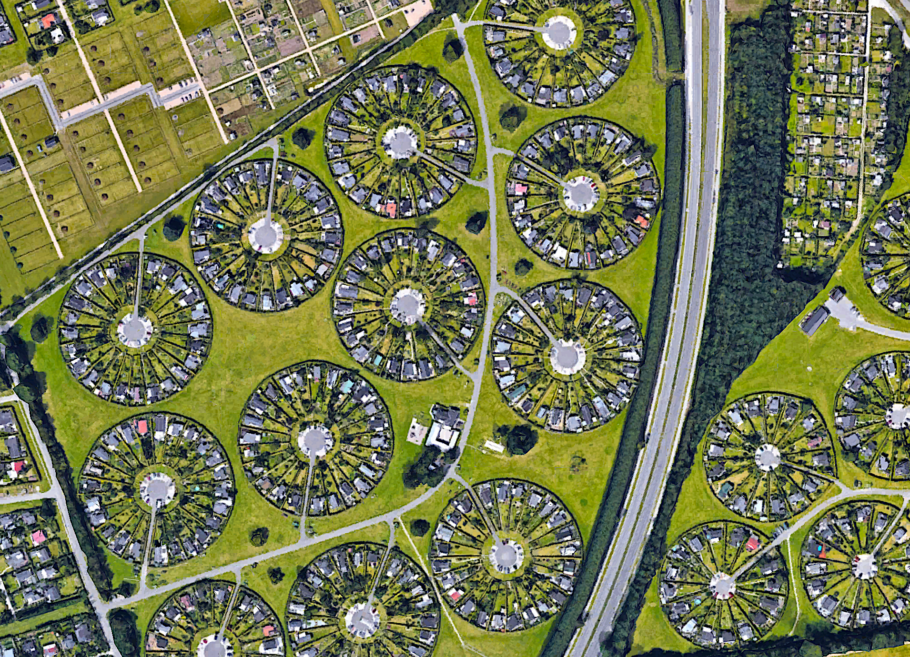Denmark’s Utopian Garden City Built Entirely in Circles: See Astounding Aerial Views of Brøndby Haveby
This unusual form, more of which you can see in Do’s drone photos at Lonely Planet, suits the long-established Danish cabin culture, according to which every city-dwelling Dane with the means buys a smaller second home in the countryside as a retreat. (Though the houses in Brøndby Haveby are owned, the gardens are rented, and local zoning laws prevent anyone from occupying their properties for more than six months out of the year.)

Wherever it is, this cabin must be made hyggelige, an adjective often translated into English as “cozy” and that, in recent years, has become a byword for the love of small-scale contentment that sets Denmark apart. (Not everybody is sold on the concept: “With its relentless drive towards the middle ground and its dependence on keeping things light and breezy,” writes British Denmark expat Michael Booth, “hygge does get a bit boring sometimes.”) As Lenni Madsen, a Danish Quora user with a Brøndby Haveby house in the family, puts it, “Imagine your average small-time community, where everyone knows everyone else, you see each other across the hedge, perhaps sharing a beer or having coffee at each others’ houses.”

This seems a far cry from the alienation and depravity of the standard suburban cul-de-sac, at least as portrayed in American popular myth. And it isn’t hard to see the appeal for average urbanites, especially those looking to spend their generous vacation time in as different an environment as possible without having to go far. (Homeowners must already have a primary residence within 20 kilometers, which includes the city of Copenhagen.) The astonished reactions on social media would suggest that most of us have never seen a place like this before. But for the Danes, it’s just another chapter in their civilizational pursuit of all that is hyggelige.
Related Content:
Frank Lloyd Wright Designs an Urban Utopia: See His Hand-Drawn Sketches of Broadacre City (1932)
The Medieval City Plan Generator: A Fun Way to Create Your Own Imaginary Medieval Cities
Japanese Designer Creates Incredibly Detailed & Realistic Maps of a City That Doesn’t Exist
In Search of Ludwig Wittgenstein’s Secluded Hut in Norway: A Short Travel Film
Based in Seoul, Colin Marshall writes and broadcasts on cities, language, and culture. His projects include the Substack newsletter Books on Cities, the book The Stateless City: a Walk through 21st-Century Los Angeles and the video series The City in Cinema. Follow him on Twitter at @colinmarshall, on Facebook, or on Instagram.
Denmark’s Utopian Garden City Built Entirely in Circles: See Astounding Aerial Views of Brøndby Haveby is a post from: Open Culture. Follow us on Facebook, Twitter, and Google Plus, or get our Daily Email. And don't miss our big collections of Free Online Courses, Free Online Movies, Free eBooks, Free Audio Books, Free Foreign Language Lessons, and MOOCs.
from Open Culture https://ift.tt/3drwe2q
via Ilumina
Comments
Post a Comment